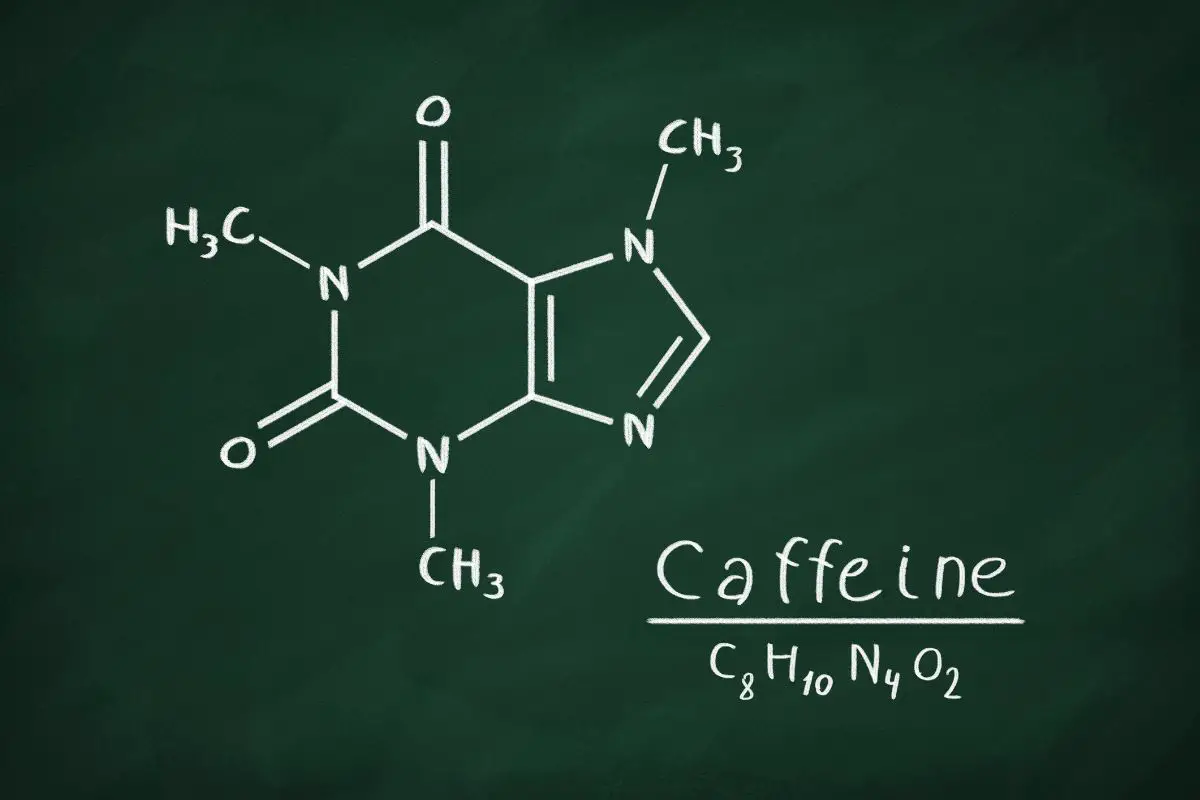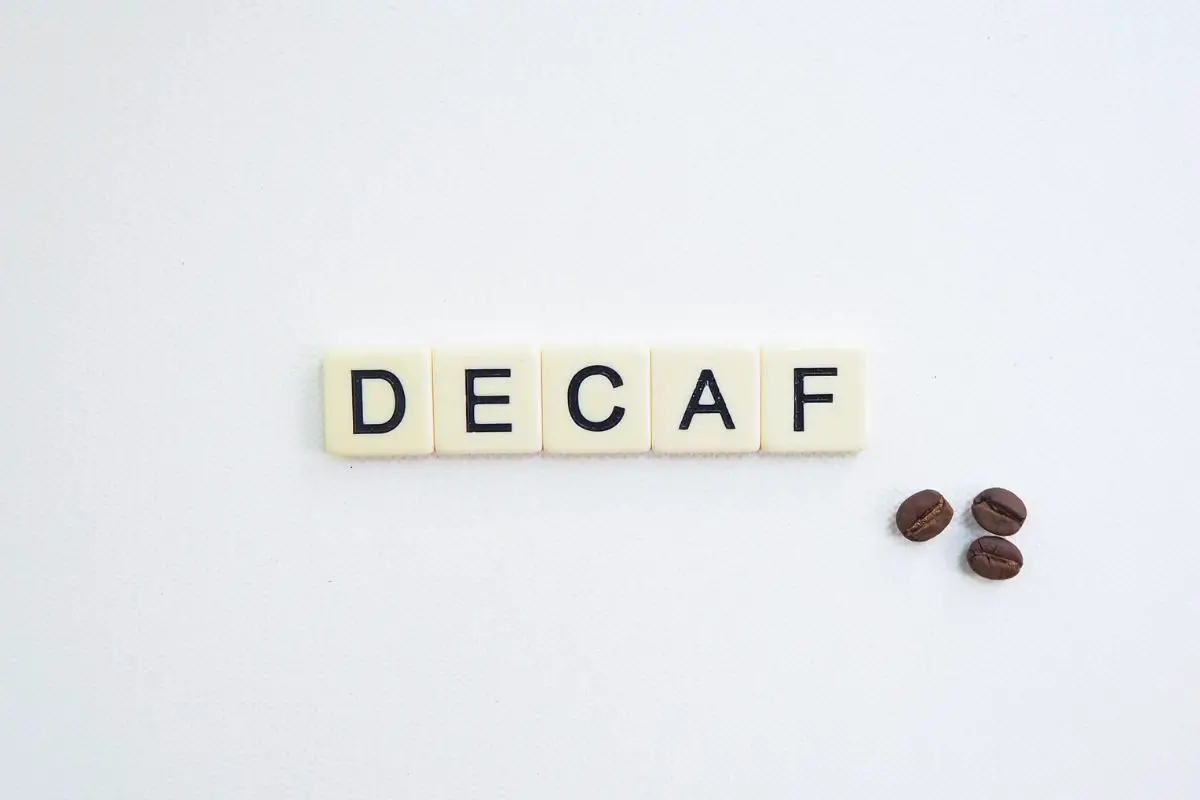As you enjoy your morning cup of coffee or a nice tall glass of dessert coffee in the afternoons, do you ever think of the caffeine you are taking?

Most of us do because that’s why we drink coffee – for the caffeine kick! We always order Cold brews, Americanos, Espressos, and other highly caffeinated drinks to boost our mood and energy.
However, these coffee drinks can be addictive. Their effect on our senses and energy levels can keep us reaching for one cup of coffee after another. That’s why some coffee lovers end up suffering from jitters.
Now, people are becoming more conscious of coffee and its caffeine content. Side effects such as stomach cramps, headaches, anxiety, and increased blood pressure are making us question the benefits of caffeine. It has also triggered lots of questions concerning caffeine among coffee drinkers.
A popular question is, “Are coffee beans naturally caffeinated?” To answer that, we have to look at caffeine, what it is, and how it occurs in coffee beans.
What is Caffeine?
Caffeine is a natural compound extracted from seeds and other parts of plants. You can get it from cacao beans, Yerba mate leaves, guarana berries, Yoco barks, and the coffee beans we use to brew coffee.
The amount of caffeine you get from coffee beans and other caffeine sources depends on how they are processed.
Caffeine has a stimulatory effect on our minds; that’s why it increases your focus, energy, alertness, and moods. Besides the stimulatory properties of caffeine that help keep you awake and energized, caffeine can also improve your health when taken in moderation. It enhances neurological functions and can lower your risk of suffering from Diabetes.
But that doesn’t mean you can take excessive amounts of caffeine. The daily accepted limit is 400 mg of caffeine a day. Anything more increases your chances of suffering from the side effects of caffeine. That applies whether you get your caffeine from natural sources such as coffee beans or synthetic ones such as OTC pain medication.
How Does Caffeine Occur in Coffee Beans?
The first thing to note is that caffeine is present in all parts of the coffee plant. Therefore, although we only think of it in coffee beans, we can find it in the leaves, stems, and other parts of the coffee plant.
The highest quantity of caffeine is found in the coffee cherry. That’s where you find the coffee seed, which we always refer to as the coffee bean.
Robusta and Arabica coffee beans are the most popular coffee beans in cafes and homes. Robusta coffee beans contain more caffeine than Arabica coffee beans.
You can extract caffeine from coffee beans using cold water or hot water. The amount of caffeine in coffee beans decreases based on the processes they are exposed to, such as roasting.
What is Synthetic Caffeine?
You may assume all caffeine is natural, but that’s a myth. Caffeine can be manufactured synthetically. It is found in OTC drugs, energy drinks, dietary supplements, and some foods.
Does synthetic caffeine have the same effect on the body as natural caffeine? No. Although it’s hard to tell these two types of caffeine apart because they have an identical chemical composition, synthetic caffeine is absorbed faster by the body than natural caffeine.
We should also mention that the adverse effects of caffeine on the body are more evident when using synthetic caffeine. Since it’s absorbed faster by the body, it causes quick spikes and crashes in energy that may cause health issues. That’s why taking too many energy drinks and sodas can have a detrimental effect on one’s blood sugar.
These forms of caffeine are also differentiated by their source. Natural caffeine, as mentioned above, is sourced from plants and their parts, such as berries, barks, seeds, and leaves. But synthetic caffeine is made using chloroacetic acid and urea.
The reason we have synthetic caffeine is that it’s cheaper to produce than natural caffeine. It comes in handy in manufacturing drugs, dietary supplements, and more.
Always watch the intake of anything with synthetic caffeine such as energy drinks. Otherwise you may end up suffering from blood sugar issues, high blood pressure attacks, or severe anxiety.
What About Decaffeinated Coffee Beans?

You may wonder about decaf when thinking of how caffeine naturally occurs in coffee beans. What happens to the caffeine in it?
Well, decaf coffee beans are originally regular coffee beans with normal caffeine content before processing. They have to undergo a process of stripping caffeine from them to become decaf coffee beans.
There are three processes used to decaffeinate coffee beans. These are the water decaffeination method, direct solvent method, and carbon dioxide method.
All processes of extracting decaf from coffee require the use of an agent such as activated charcoal, carbon dioxide, and methylene chloride. They hasten the decaffeination process and minimize the loss of beneficial water-soluble substances in coffee beans. These agents are mostly removed from the coffee beans during the roasting process.
Swiss decaffeination is probably the most preferred method by health-conscious people. That’s because it only requires the use of activated charcoal and water to strip caffeine from coffee beans. Therefore, it is referred to as organic decaffeination.
Decaf coffee is preferred by people who suffer from caffeine sensitivity because it contains less than 10 mg of caffeine. You cannot compare its taste to regular coffee because most of the flavor is lost during decaffeination.
You may be interested to know that scientists are also pursuing the production of naturally decaffeinated coffee beans. These hybrid Arabica coffee beans from Ethiopia were discovered by Brazilian scientists in the early 2000s.
With such developments, you can see that although caffeine naturally occurs in coffee beans, we are heading to times when we will grow naturally decaffeinated coffee.
Conclusion
Now you know the answer to “are coffee beans naturally caffeinated?” We’ve also informed you of sources of caffeine that you can enjoy apart from coffee beans.
You’ve also learnt of something that many people are unaware of, and that’s the existence of synthetic caffeine.
With that information in mind, you will be able to manage your intake of coffee and beverages that contain synthetic caffeine like energy drinks. And if caffeine is becoming addictive, decaf is always an option.
Related Articles
Do Coffee Beans Lose Caffeine Over Time?